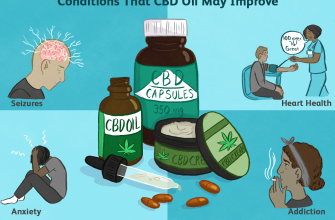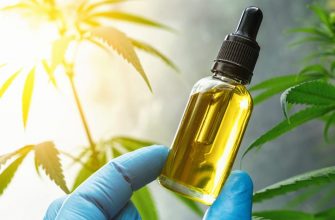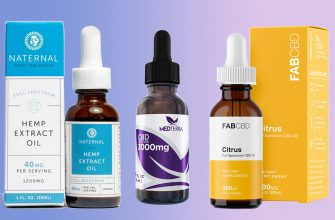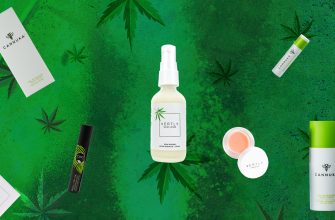1. CBD became illegal before it was discovered.
Hemp was effectively banned by the federal government in 1937 with the passage and enforcement of the Marijuana Tax Act. The law explicitly stated that hemp resin, or any extract from the resin, was considered “marijuana” (that is, an evil weed). Cannabidiol (CBD) is found in the resin, nowhere else in the plant. (Tetrahydrocannabinol – THC, also known as the “intoxicating cannabinoid” – is also concentrated in the resin, along with a range of other therapeutic compounds.) Essentially, CBD, the non-toxic ingredient in cannabis, was banned by federal law before anyone actually knew. about the existence of CBD.
It wasn’t until 1940 that University of Illinois chemist Roger Adams first identified and synthesized CBD. Two years later he was awarded a patent for his unique method of isolating it. Adams noticed that CBD had pain-relieving properties, and he contributed to the 1944 LaGuardia Report on the Marijuana Problem, which debunked many of the Federal Bureau of Narcotics’ refrigerated crazy claims. By the time Adams retired in 1957, he had published 27 studies on CBD and the plant’s other cannabinoids. He was subsequently honored by the American Chemical Society, which established the prestigious Roger Adams Award in recognition of his life’s work. Israeli scientist Rafael Meshulam picked up where Adams left off and explained the exact molecular structure of CBD in 1963. He did the same for TGC in 1964.
Price
Original price before discount€69.90
Price: €39.90
3491.25 ₽
1364.98 ₴
Price
Original price before discount€38.90
Price: €24.90
2178.75 ₽
851.83 ₴
Price
Original price before discount€27.90
Price: €22.90
2003.75 ₽
783.41 ₴
2. CBD makes brain cells grow
Cannabidiol (CBD) not only protects brain cells - it also stimulates the growth of new brain cells, a process known as "neurogenesis". New neurons are constantly being created in two areas of the hippocampus: the subgranular zone of the dentate gyrus and the subventricular zone. lateral ventricles. These areas of the brain are densely populated with cannabinoid (CB1) receptors. Activation of CB1 receptors stimulates the creation of new neurons, a process that highlights the central role of the endocannabinoid system in embryonic and adult neurogenesis, according to a 2019 study by a team of Brazilian scientists.
Whereas THC binds directly to CB1, CBD enhances CB1 signaling through other pathways. Both CBD and THC are "neurogenic" substances that promote neurogenesis. "The pro-neurogenic effects of CBD may explain some of the positive therapeutic properties of CBD-based compounds," German scientists reported in 2010. The antidepressant properties of CBD, THC and several other compounds depend on the enhancement of neurogenesis and neuroplasticity, the ability to adapt to stress and injury - as opposed to "chronic exposure to alcohol [которое] reduces endocannabinoid activity and impairs neurogenesis in adults,” Spanish researchers revealed in 2015. It is worth noting that preclinical studies show that a low dose of CBD increases neurogenesis, but higher doses decrease it.
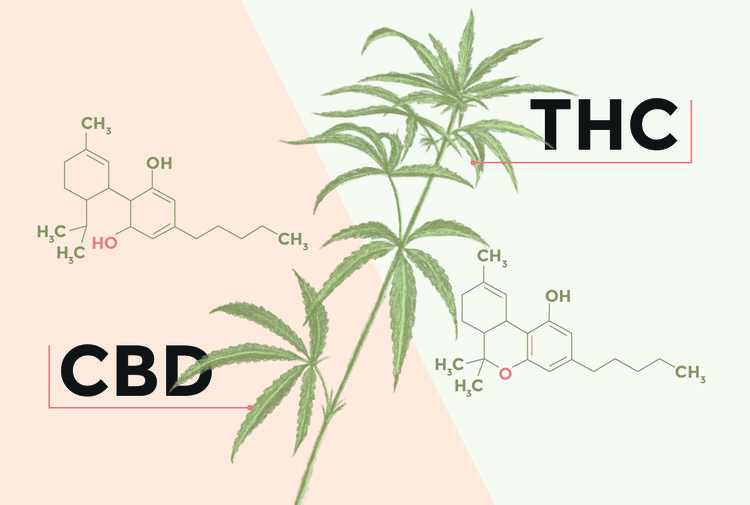
3. CBD oil is not intoxicating, but psychoactive
When CBD first became known, to educate the medical marijuana community and the general public about cannabidiol, CBD was commonly referred to as "non-psychotically active" and has since become the modern industry's mantra for CBD. “CBD is not psychoactive, it doesn’t give you a high” has always been a key selling point. According to politically correct drug dogma, high cannabis levels are a bad side effect. While CBD is certainly not an intoxicant, it is wrong to be misled that it is not psychoactive.
When a patient suffering from clinical depression or PTSD takes a tincture with a large amount of CBD and improves for the first time in a long time, it becomes clear that CBD is a powerful mood-altering molecule. Cannabidiol won't make a person feel euphoric or dysphoric like THC does, but CBD can have a positive effect on the psyche.
It is best when combined THC and CBD provide more than an additive therapeutic effect. Accordingly, it makes sense to take medication using a CBD-rich medication with as much THC as the person is comfortable with. For some people, this means as little THC as possible. Those who are highly sensitive to cannabis may have a genetic variant that interferes with their ability to metabolize THC, which remains active in their system for longer. About 20 percent of the Caucasian population express a gene polymorphism that encodes the cytochrome P450 isoform that cleaves THC. About ten percent of Africans and five percent of Asians also have this genetic anomaly, making them hypersensitive to THC. For those who don't like to get euphoric, there is an option to use a non-intoxicating CBD product with a small amount of THC.
4. CBD and THC bring out the best in each other
CBD oil companies often advertise cannabidiol for its ability to neutralize the psychoactive effects of THC. But this emphasis diverts attention from one of the greatest gifts of CBD: it allows a person to manipulate the complex psychoactive activity of marijuana in a way that suits their special needs and sensitivities. This may mean lowering the high without completely eliminating it. Finding the optimal balance between CBD and THC is a key challenge for cannabis therapists. CBD and THC are the energy pair of the hemp plant; they work best together.
Extensive clinical studies have shown that CBD combined with THC is more effective for neuropathic pain than either compound alone. Scientists at the California Pacific Medical Center in San Francisco found that the CBD-THC combination had a stronger antitumor effect than either compound alone when tested on brain and breast cancer cell lines. And according to a 2010 study in the British Journal of Pharmacology, CBD enhances the anti-inflammatory properties of THC in an animal model of colitis: “CBD increased some of the effects of an ineffective dose of THC to the level of an effective one.” In other words, a low, non-intoxicating dose of THC on its own may not be therapeutically effective. However, when combined with CBD, a non-intoxicating dose of THC can lead to the desired therapeutic outcome.
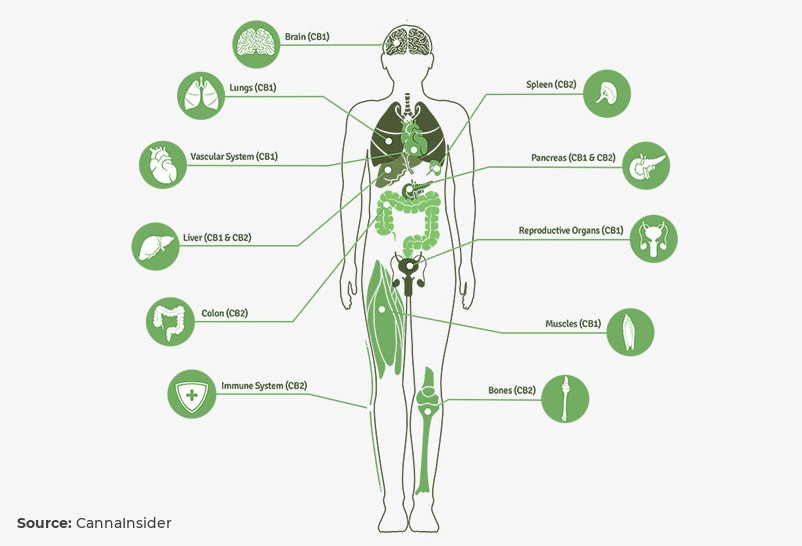
5. CBD is a promising compound.
The canonical endocannabinoid system consists of two cannabinoid receptor subtypes (CB1 and CB2); the two main endocannabinoid ligands (anandamide and 2-AG) that activate these receptors; and various proteins that regulate the biosynthesis, transport and metabolic breakdown of our endogenous cannabinoids. It turns out that CBD has little binding affinity for any cannabinoid receptor, but instead mediates its effects through a bewildering array of molecular pathways. According to Mayo Clinic neurologist Eugene L. Scharf (in 2017), over 65 molecular targets of CBD have been identified in the scientific literature, including various G protein-coupled receptors that activate or inhibit serotonin, adenosine, and opioid transmission. CBD binds to several so-called orphan receptors (GPR3, GPR6, GPR12, GPR18, GPR55...) and also interacts with GABAa receptors; nuclear receptors (PPARs); several members of the transient receptor potential (TRP) channel family of ionotropic receptors; and various ligand-gated ion channels such as glycine (GlyR), nicotinic acetylcholine (nACh), and sodium channels (NaV).
For a small molecule, this is already a lot, but that's not all. CBD functions as a negative allosteric modulator of the CB1 receptor, meaning that it interferes with THC's ability to signal through CB1 without completely blocking it. This appears to be one of the ways that CBD lowers the ceiling on THC's intoxicating effect. In addition, CBD acts through various receptor-independent channels to achieve therapeutic results. As Paula Morales and Patricia J. Reggio report in Medicinal Chemistry, the promiscuous nature of CBD "opens new perspectives for the treatment of neurological, oncological and inflammatory diseases."
CBD hemp oil crystalline - hemp seed oil, ...
Price
Original price before discount€30.00
Price: €24.99
2186.63 ₽
854.91 ₴
CBD hemp oil crystalline - hemp seed oil, ...
Price
Original price before discount€42.90
Price: €26.99
2361.63 ₽
923.33 ₴
CBD oil crystalline - hemp seed oil enriched ...
Price
Original price before discount€72.90
Price: €44.99
3936.63 ₽
1539.11 ₴
A source.


